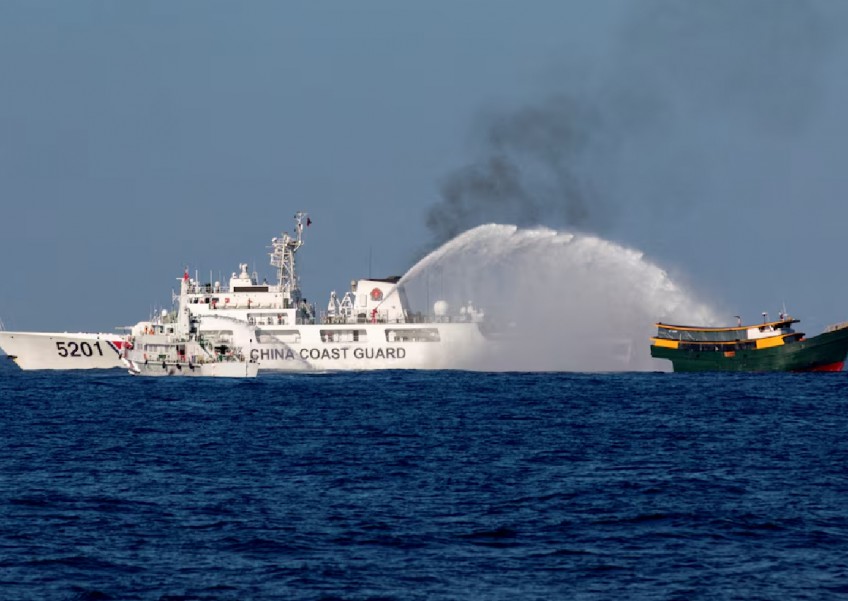Philippines denies deal with China over disputed South China Sea shoal


MANILA — The Philippines on Saturday (April 27) denied a Chinese claim that the two countries had reached an agreement over an escalating maritime dispute in the South China Sea, calling the claim propaganda.
A spokesperson at China's embassy in Manila said on April 18 that the two had agreed early this year to a "new model" in managing tensions at the Second Thomas Shoal, without elaborating.
Philippine Defence Secretary Gilberto Teodoro said on Saturday his department was "not aware of, nor is it a party to, any internal agreement with China" since President Ferdinand Marcos Jr took office in 2022.
Defence department officials have not spoken to any Chinese officials since last year, Teodoro said in a statement.
China's embassy in Manila did not immediately respond to a request for comment on Teodoro's comments outside office hours.
Beijing and Manila have repeatedly clashed in recent months at the submerged reef, which Philippines says is in its exclusive economic zone but which China also claims.
The Philippines had accused China of blocking manoeuvres and firing water cannons at its vessels to disrupt supply missions to Filipino soldiers stationed in a naval ship which Manila deliberately grounded in 1999 to bolster its maritime claims.
[[nid:678515]]
China claims almost the entire South China Sea, a conduit for more than US$3 trillion (S$4.1 trillion) in annual ship commerce.
Its claims overlap with those of the Philippines and four other nations.
In 2016, the Permanent Court of Arbitration in the Hague said China's claims had no legal basis, a decision Beijing rejects.
Teodoro called China's claims of a bilateral agreement "part of the Chinese propaganda", adding that the Philippines would never enter into any agreement that would compromise its claims in the waterway.
Its unique content recommendation technology is what predicts which videos will pique user's interest.
And it has attracted more discussion than the technology used by rivals like Instagram and YouTube.
"The narrative that unnamed or unidentified Chinese officials are propagating is another crude attempt to advance a falsehood," he said.
ALSO READ: Philippines says decision to strengthen ties with Japan, US a 'sovereign choice'